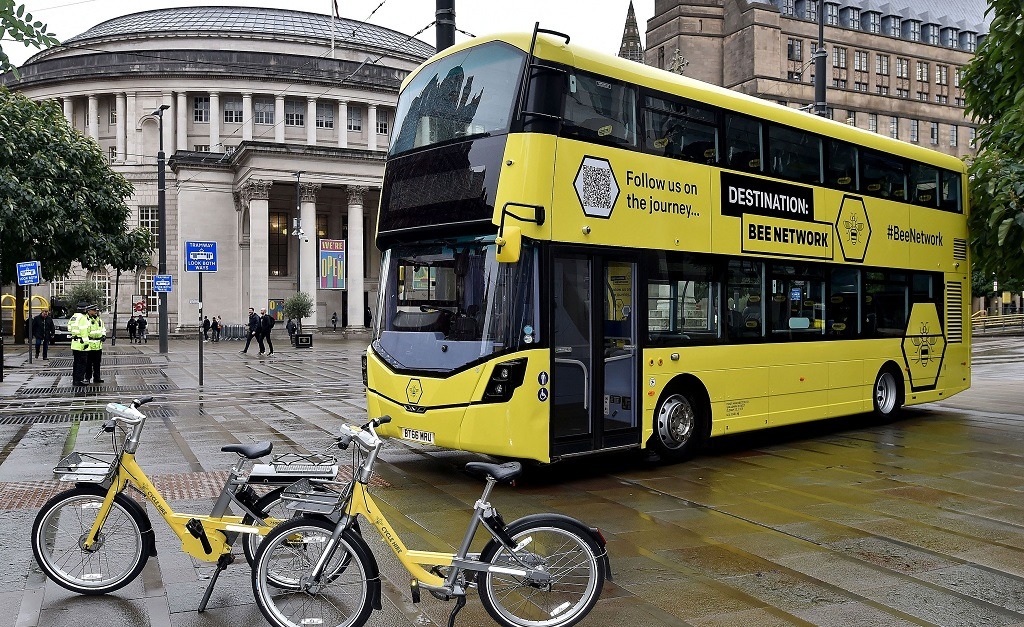From Manchester and the South West to Luxembourg and Germany…
.
Today we learnt from former Transport Secretary Grant Shapps says it would be‘outside reality’ not to reconsider HS2 as Labour says it cannot make decision without more information.
Or, as the Independent’s Paul Waugh suggests: Forget HS2, our local bus services are now so appalling people walk for hours just to work
Even though the bus is Britain’s most used form of public transport, it has suffered years of cuts in funding and routes. Forget high speed rail, it’s the no-speed bus that worries both the young and the old in areas outside London. The sense of a quiet crisis is borne out by the statistics. Official data from the Traffic Commissioners shows the number of bus routes has been halved since the Tories took power, falling from 17,394 in 2010 to 8,781 in 2022/3. Some 2,160 services were lost in just the last year alone.
Meanwhile, Manchester has announced it would launch a ‘revolutionary’ Bee Network public bus system – and the question being asked is whether this ‘transformational’ public transport can be a template for the UK:

50 yellow branded buses are taking to the streets of Manchester this weekend, the first area in England and Wales, outside London, to have its own regulated bus system since privatisation almost four decades ago. The new Bee Network is part of efforts to simplify the city’s public transport, including zero emission vehicles and integrated travel. Greater Manchester’s mayor Andy Burnham has described it as “transformational”.
Also reported yesterday, Bristol and the South-West seem determined to provide some sort of mass transit system.
Whilst is could well be the case that Luxembourg’s free public transport can help save the world:
The popularity of discounted public transport schemes across Europe shows that the public is crying out for solutions such as Luxembourg’s – to help with cost of living crises, traffic congestion, pollution and climate emergency targets. “This is the way we need to go,” says Meys. “We don’t have many other choices. Electric cars are better but they are expensive, and there are pollution issues related to their production. The solution is really a shift in mobility: to walking, cycling and public transport. If we continue what we are doing now, we are headed for a brick wall.”
Finally: the Germans are never satisfied so it seems, with a minister saying its public transport must become more efficient and digital friendly. And yet, going back to HS2…